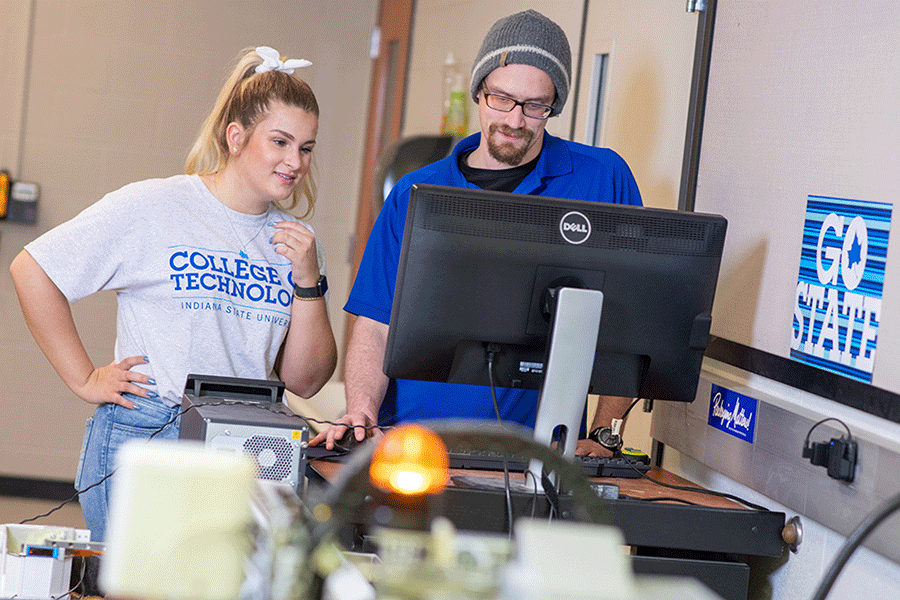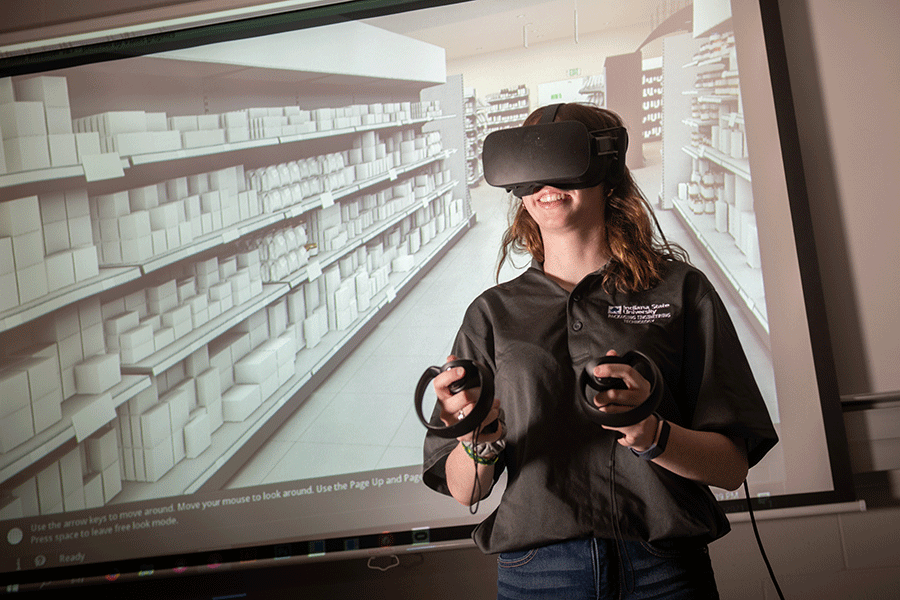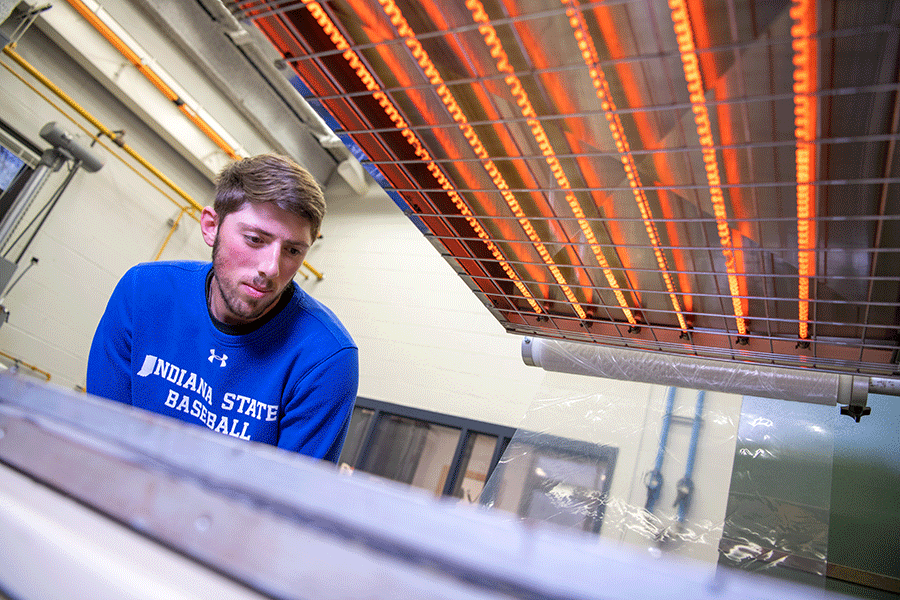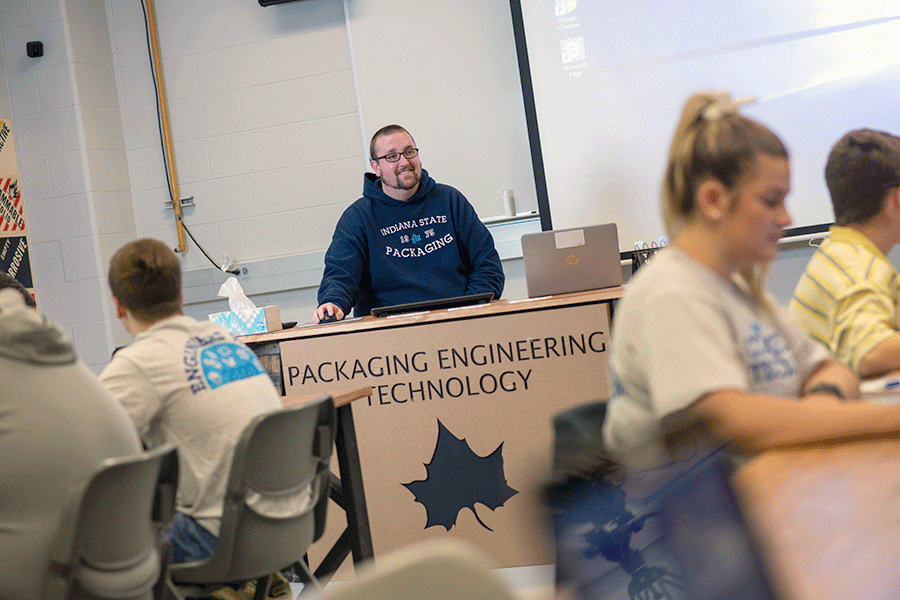Why Earn a Bachelor’s Degree in Packaging Engineering Technology at Indiana State?
Every product that is manufactured needs packaging. It protects items during shipping, displays them on shelves, and ensures they reach customers safely. At Indiana State University, our Packaging Engineering Technology program prepares students for careers in this critical and expanding field. The degree is available both on campus and online, combining hands-on learning with real-world applications in design, materials, testing, and production. Packaging is everywhere and so are the opportunities.
Earn a Nationally Recognized Degree with a 100% Placement Rate
As a Packaging Engineering Technology major, you will gain hands-on experience with industry-standard software, apply practical design techniques, and develop a strong foundation in operations and project management. You can customize your degree with focus areas such as manufacturing, mechanical systems, or graphic design.
Our program combines classroom learning, lab work, and real-world experience. After your first year, you will complete a co-op or internship that lets you earn both credit and money while working in the field. This paid opportunity helps you build skills, grow your network, and boost your resume.
With strong industry connections and a focus on applied learning, the Packaging Engineering Technology program prepares students to step directly into rewarding careers after graduation.
Learn from Our Excellent Faculty
In the Packaging Engineering Technology program, small class sizes mean you receive personal attention and meaningful interaction with your professors and classmates; whether you choose to study online or on campus.
All courses are taught by faculty who bring a mix of academic knowledge and real-world experience to the classroom. Each professor has a minimum of five years of industry experience, ensuring that what you learn is practical, current, and relevant.
Enrich Your Learning with Great Resources and Opportunities
On-campus students take classes in the John T. Myers Technology Center, which features more than 20 laboratories equipped with current technologies, including dedicated packaging labs. Online students also have the opportunity to visit campus to complete lab work and gain hands-on experience.
You can enhance your education by joining student organizations that connect you with industry professionals and fellow students. The main packaging student group is STATEPACK, which partners with leading organizations such as the International Corrugated Packaging Foundation (ICPF), Association for Packaging and Processing Technologies (PMMI), Institute of Packaging Professionals (IoPP), American Forest & Paper Association (AFANDPA), Paperboard Packaging Alliance (PPA), Association of Independent Corrugated Converters (AICC), and several others. These connections provide access to scholarships, mentoring, and educational resources.
Participation opens the door to local chapter meetings, state and national events, professional conventions, and a wide range of financial and career-building opportunities.
What You’ll Learn in the Packaging Engineering Technology Program
As a Packaging Engineering Technology major, you will build a strong foundation across science, mathematics, and applied technology. The program blends theory with hands-on learning in four major areas: packaging design, material performance, system analysis, and distribution. You’ll study the principles of chemistry and physics, learn to fabricate packaging using industry-standard tools, and develop technical drawings with computer-aided design. You’ll also explore real-world logistics through coursework in storage, warehouse operations, and package testing for impact, shock, and vibration. Whether on campus or online, you’ll complete design challenges and gain access to internships or industry-connected learning experiences that prepare you for a fast-moving and opportunity-rich career.
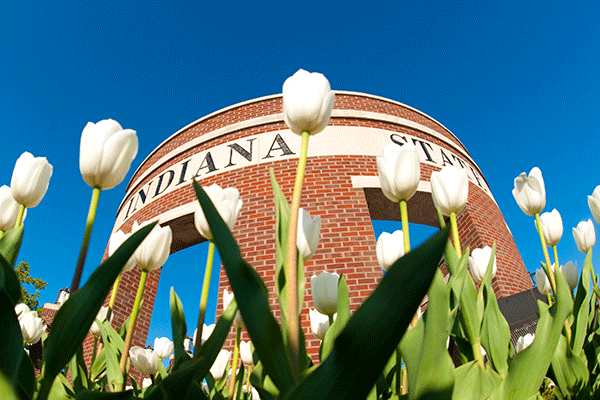
Transfer Credit
Indiana State University accepts credit from regionally accredited colleges and universities within the United States, and from selected schools located outside the United States. Credit also may be granted for military training and experience. Previously earned college credit can be applied toward completion of the program per Indiana State's transfer guidelines.
Transfer GuidelinesCareer Possibilities for Packaging Engineering Technology Majors
Graduates of the Packaging Engineering Technology program are prepared for a wide range of careers, including roles in package design, packaging engineering, research and testing, technical sales, graphic layout, and product development. Employers who have hired Indiana State University graduates include:
- Arrow Packaging Solutions
- Church & Dwight
- Cook Medical
- Elanco
- International Paper
- North American Lighting
- Packaging Corporation of America
- Pratt Industries
- Simtra Biopharmaceutical Solutions
- Tyson Foods
Maximize Your Experience at Indiana State
Explore our Honors College to learn how you can maximize your college experience with faculty mentors, undergraduate research, internships, and Honors housing. Students in the Honors College also enjoy opportunities to travel across the nation and abroad for conferences, service-learning trips, and immersive academic and cultural studies.
Learn About the Honors CollegeAccreditation
Indiana State University is accredited by the Higher Learning Commission.
The Packaging Engineering Technology undergraduate program is accredited by the Engineering Technology Accreditation Commission of ABET. https://www.abet.org
Program Educational Objectives (PEOs)
Graduates two to three years into their career should have the foundation to:
- PEO 1 (Technology) - Apply disciplinary reasoning, critical thinking, and hands-on skills to identify, analyze, and solve problems.
- PEO 2 (Communicate) - Communicate effectively in both oral and written form to articulate technical knowledge, ideas, and proposals.
- PEO 3 (Management and/or Teamwork) - Perform effectively, think independently, and work collaboratively in a team environment in a membership or leadership role.
Student Outcomes (SOs)
Students at the time of graduation are prepared to demonstrate:
(1) An ability to apply knowledge, techniques, skills and modern tools of mathematics, science, engineering, and technology to solve broadly defined engineering problems appropriate to the discipline.
(2) An ability to design systems, components, or processes meeting specified needs for broadly defined engineering problems appropriate to the discipline.
(3) An ability to apply written, oral, and graphical communication in broadly defined technical and non-technical environments; and an ability to identify and use appropriate technical literature.
(4) An ability to conduct standard tests, measurements, and experiments and to analyze and interpret the results to improve processes.
(5) An ability to function effectively as a member as well as a leader on technical teams.
Proud Partner of:
Arrow Packaging Solutions 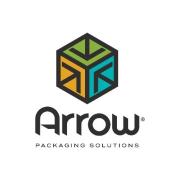
|
International Corrugated Packaging Foundation (ICPF) 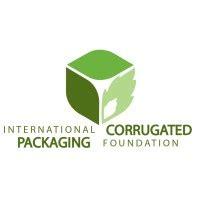
|
Rose-Hulman Ventures 
|
H.B. Fuller 
|
| American Forest & Paper Association afandpa.org |
| Arden Software ardensoftware.com |
| Association of Independent Corrugated Converters (AICC) aiccbox.org |
| Association for Packaging and Processing Technologies (PMMI) pmmi.org |
| ESKO Software esko.com |
| Hoosier Feeder |
| hoosierfeedercompany.com |
| Institute of Packaging Professionals (IoPP) iopp.org |
| International Paper internationalpaper.com |
| KUKA AG kuka.com |
| Packaging Corporation of America packagingcorp.com |
| Paperboard Packaging Alliance (PPA) paperboardpackaging.org |
| Specright specright.com |
| TOPS Software topseng.com |
| Trayak trayak.com |
| White & Company whiteandcompany.net |
Related Programs
-
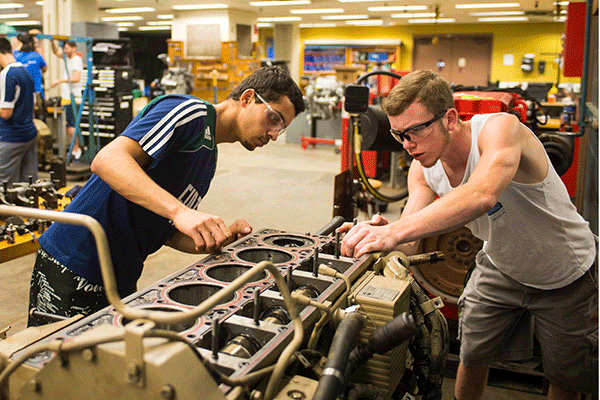
Automotive Engineering Technology (BS)
Bachelor's
-
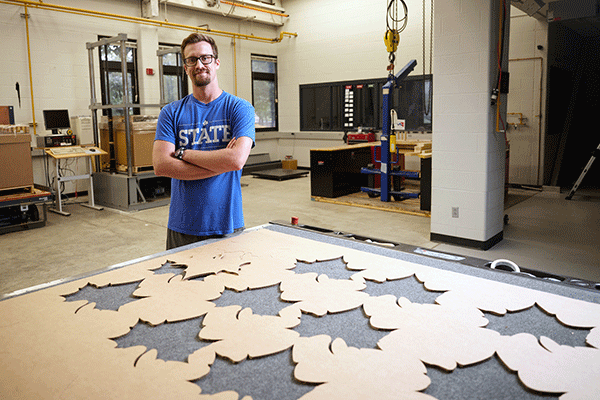
Manufacturing Engineering Technology (BS)
Bachelor's
-
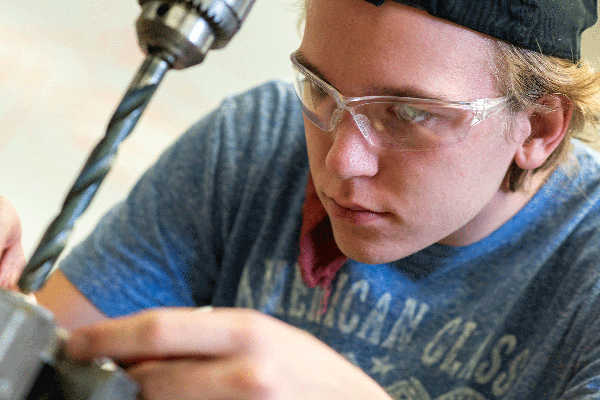
Mechanical Engineering Technology (BS)
Bachelor's
